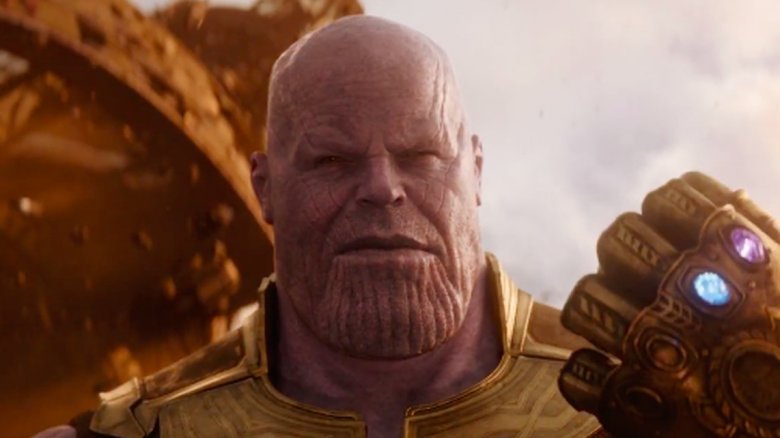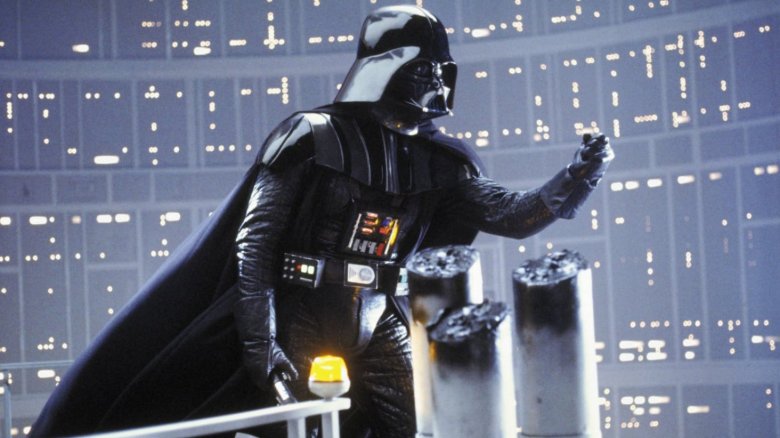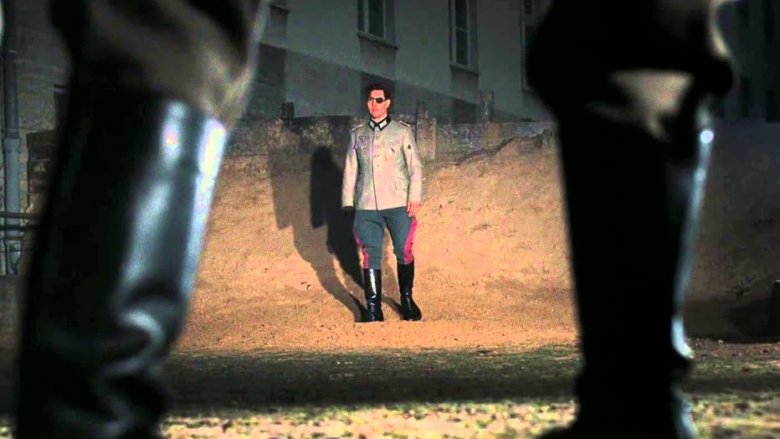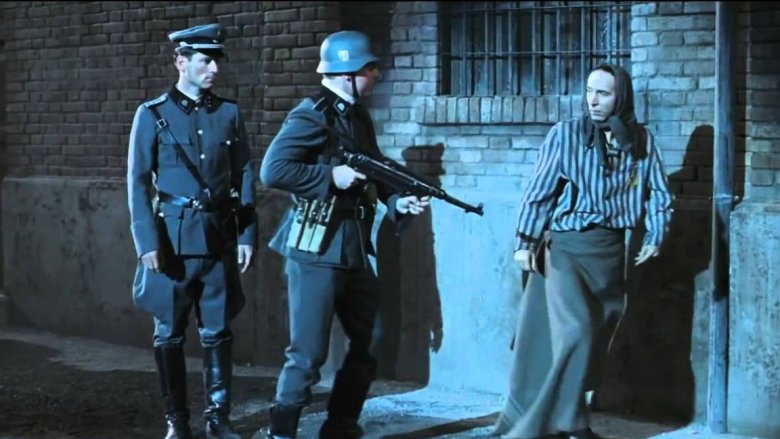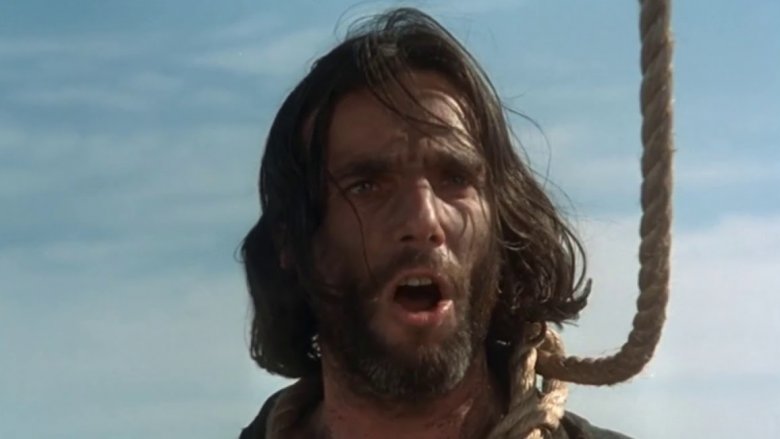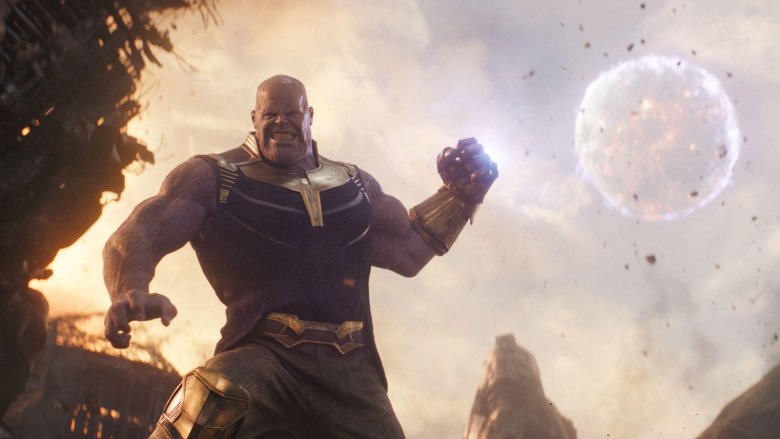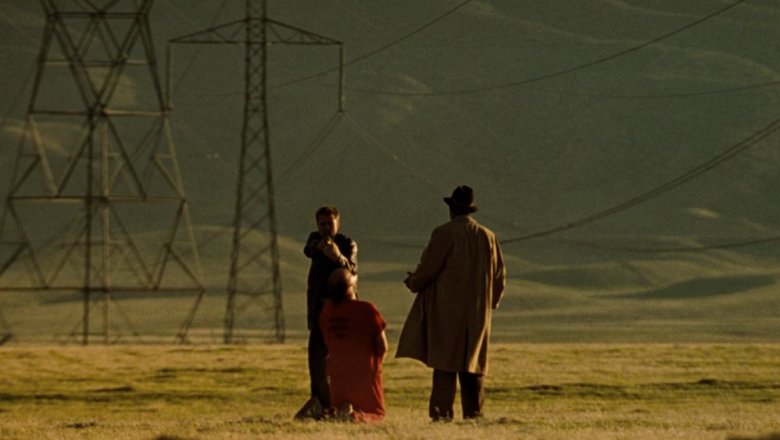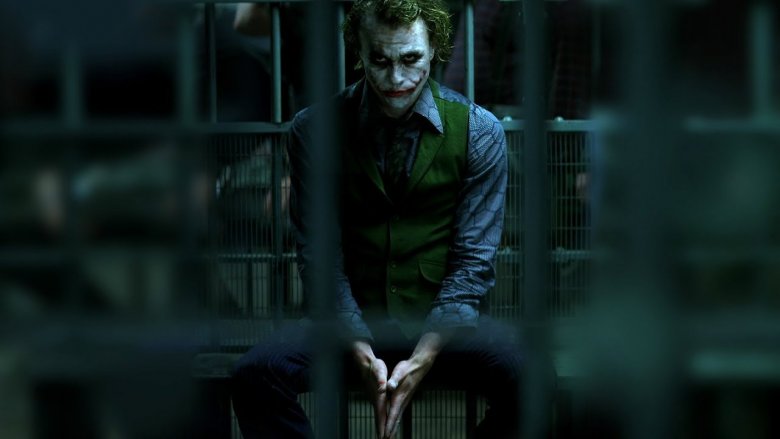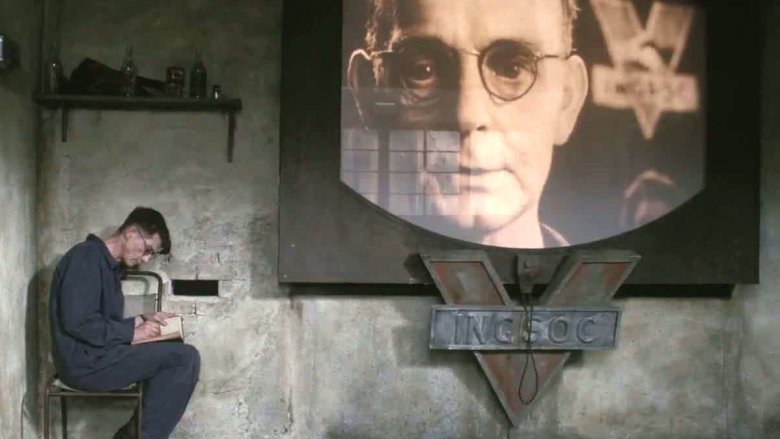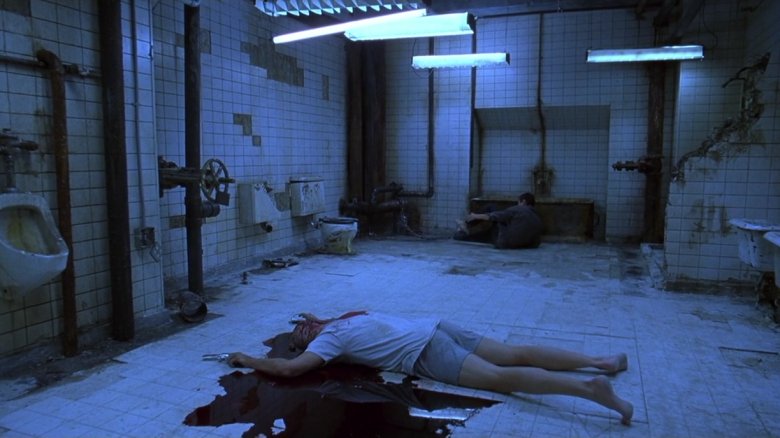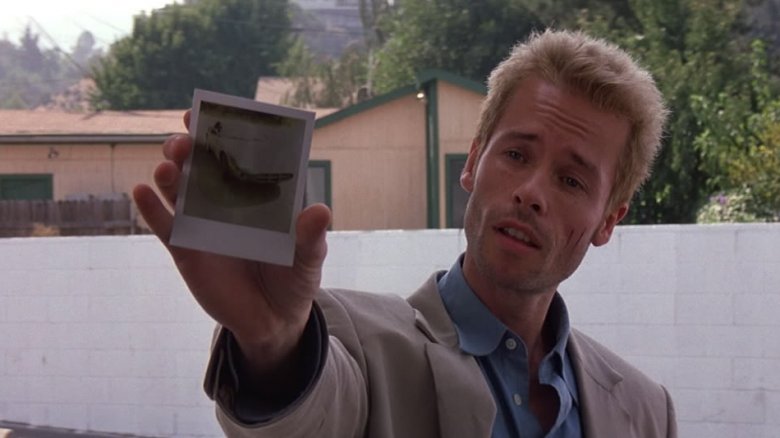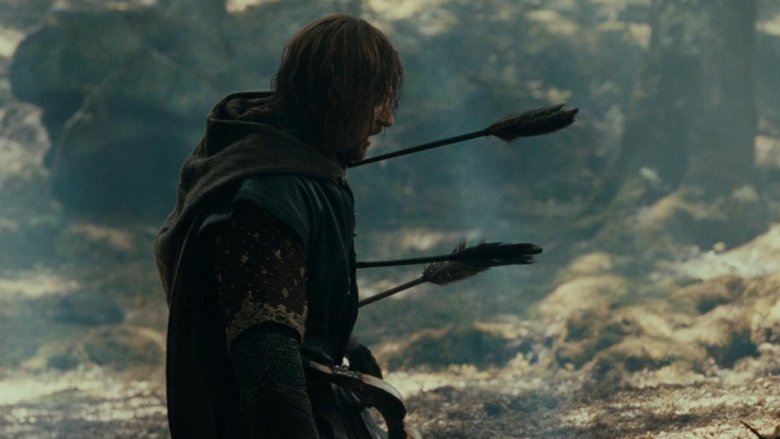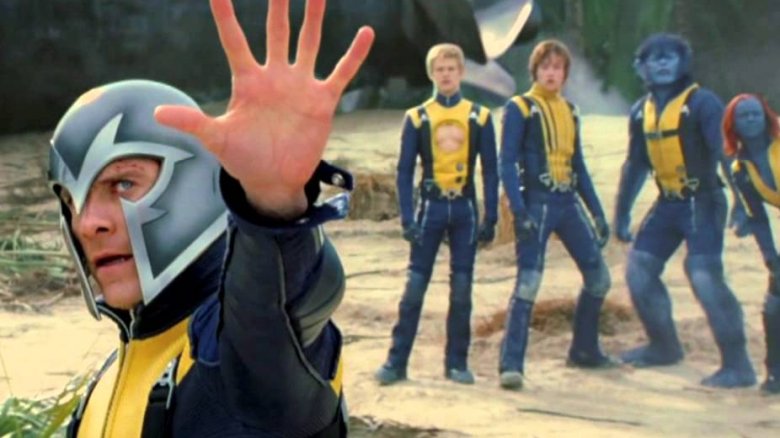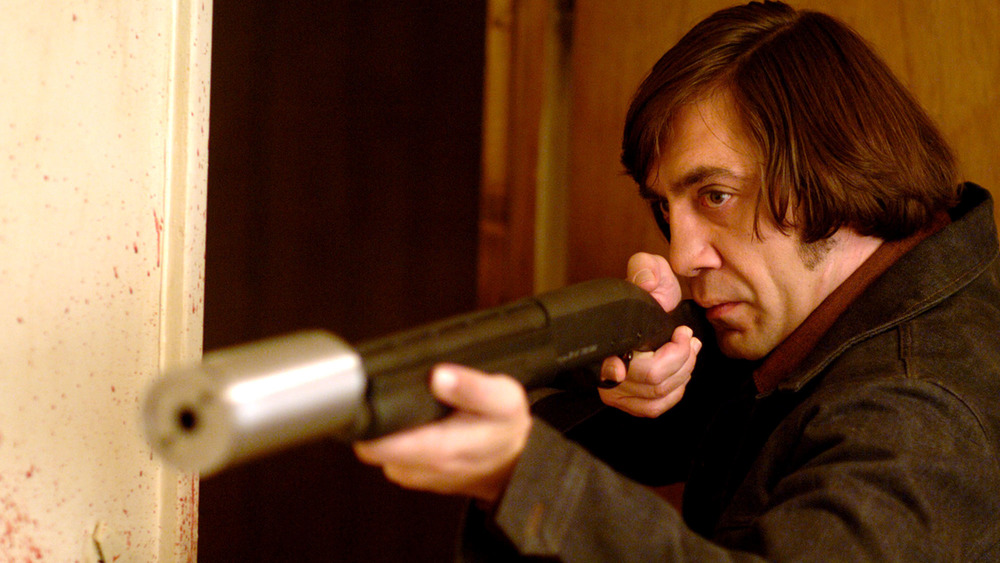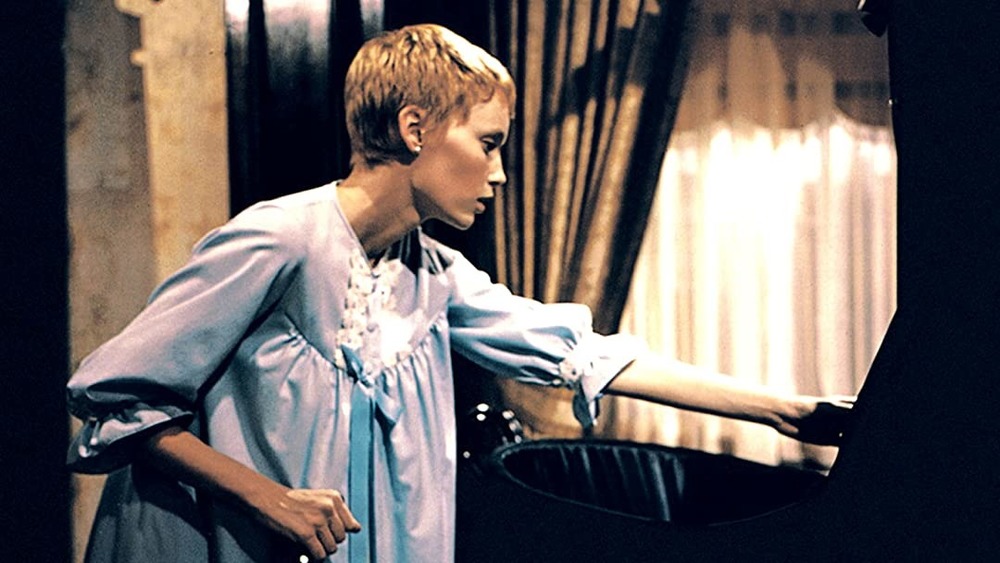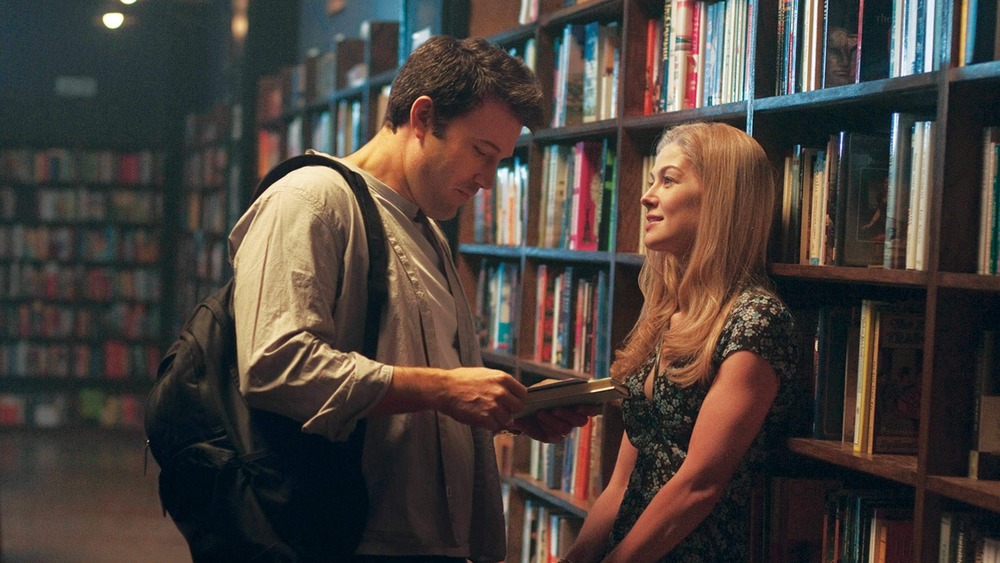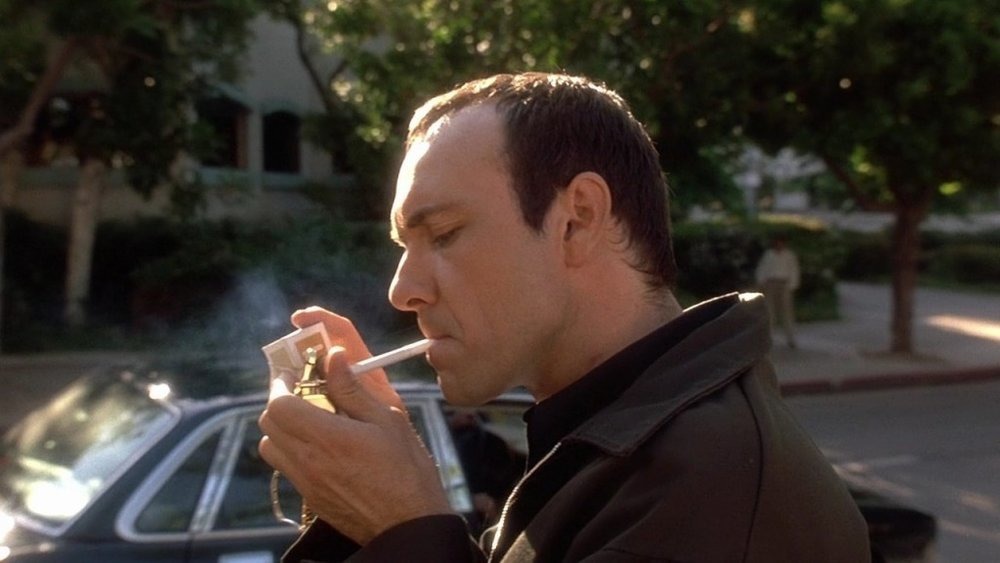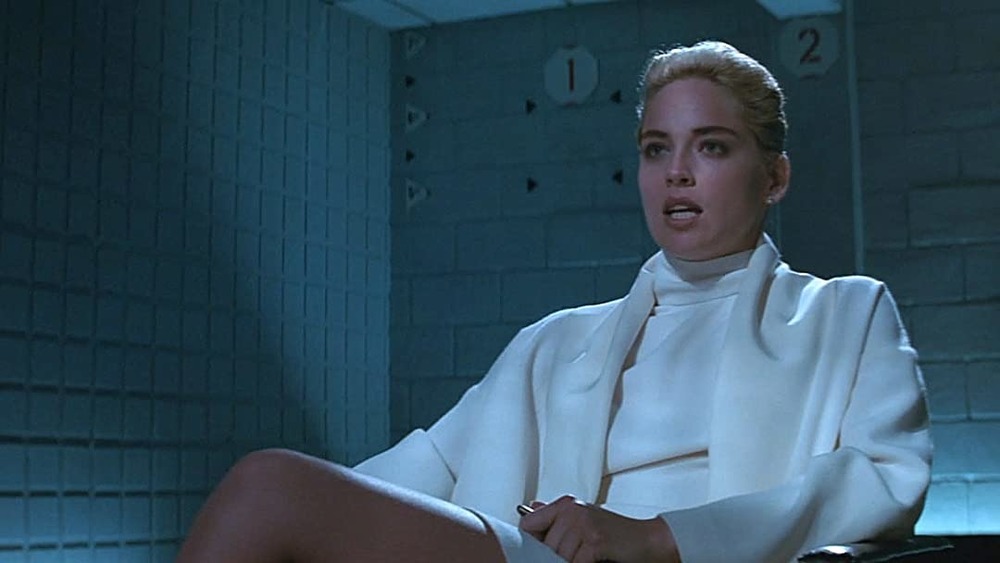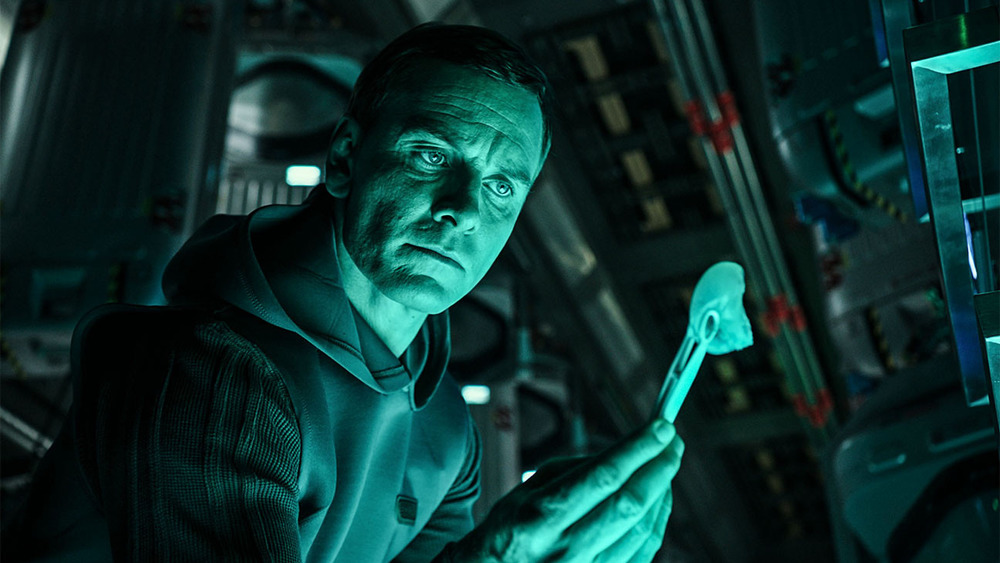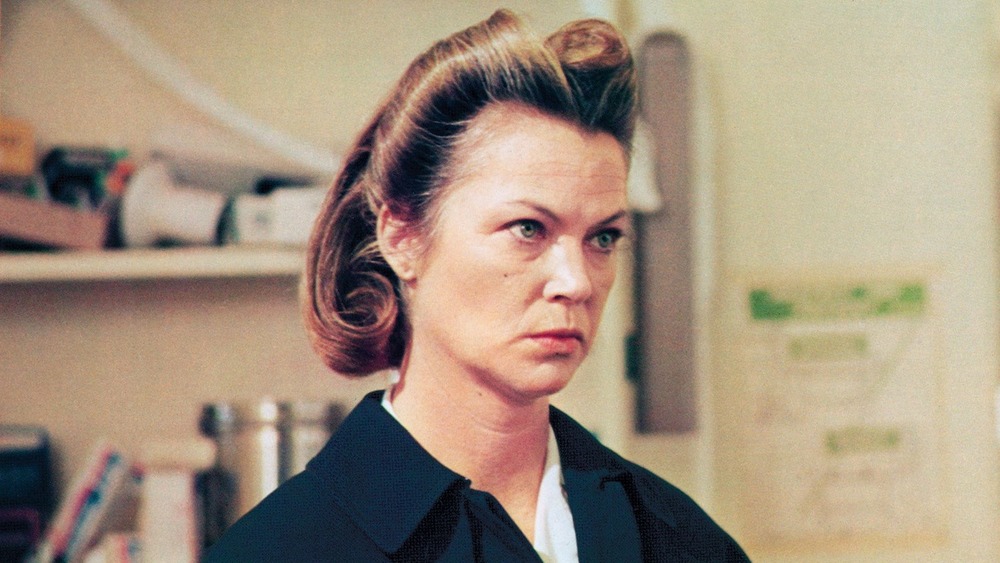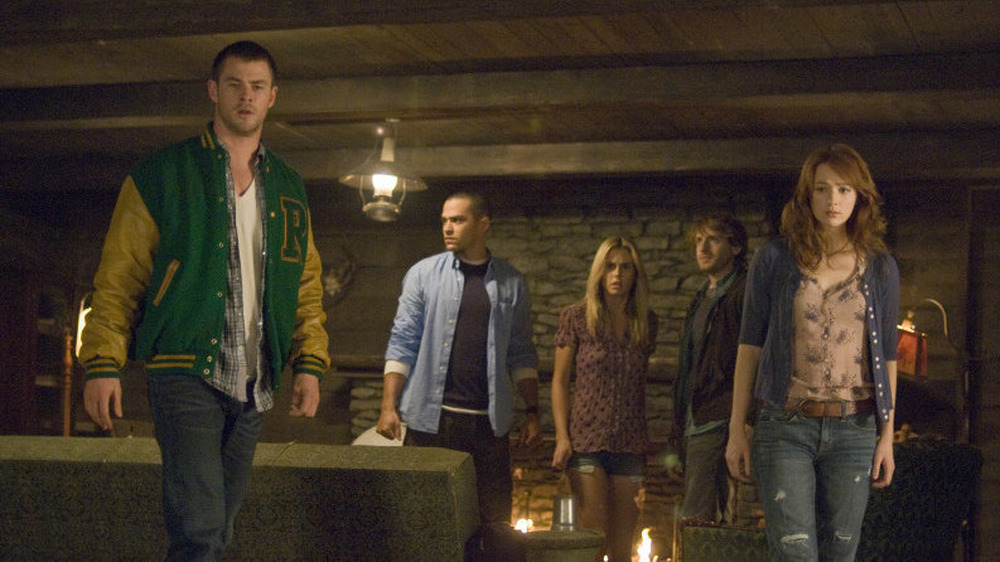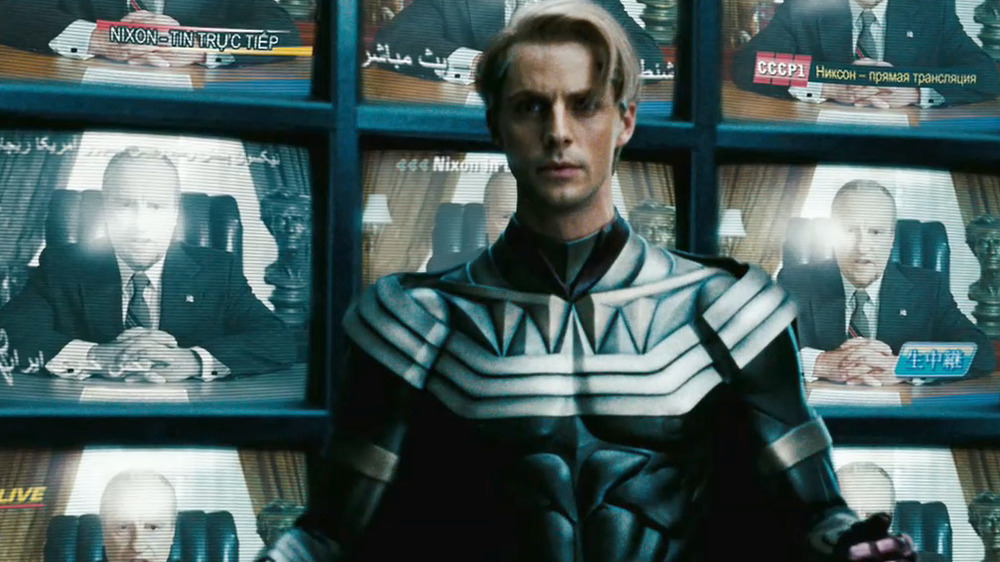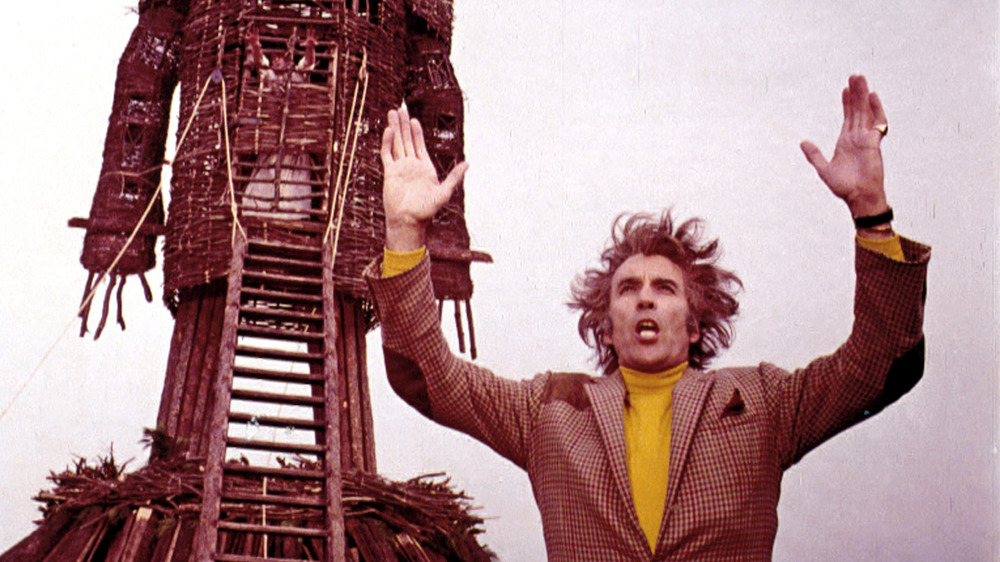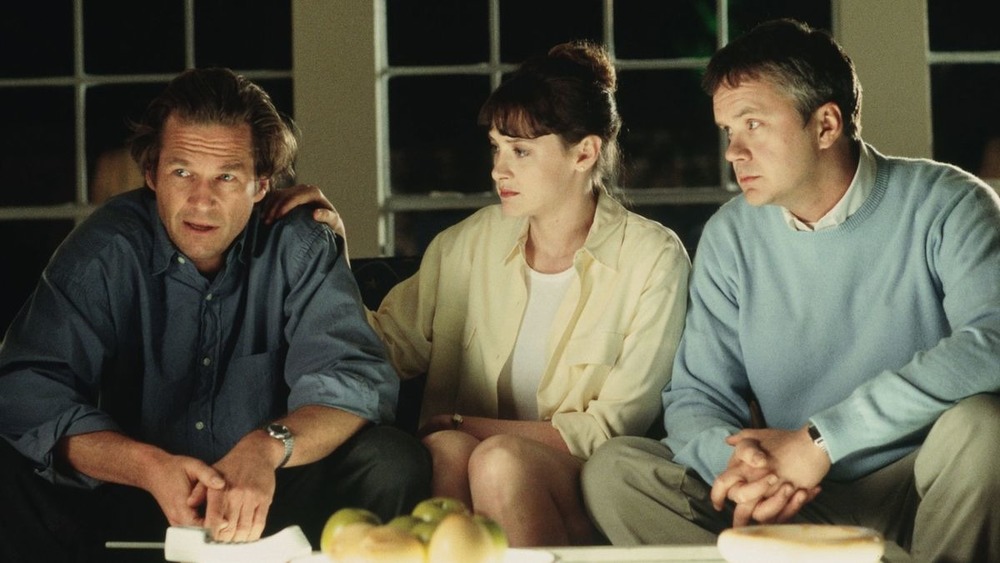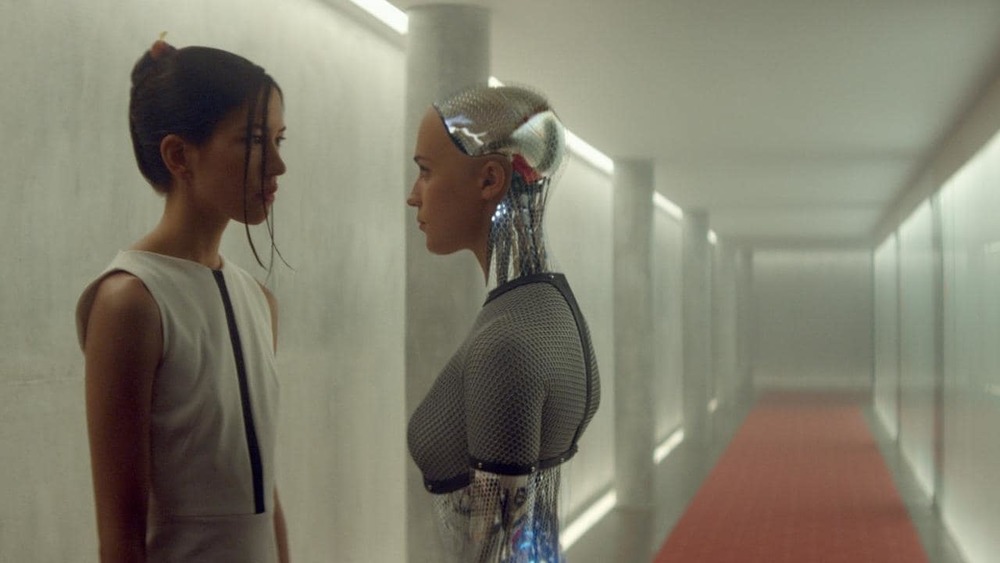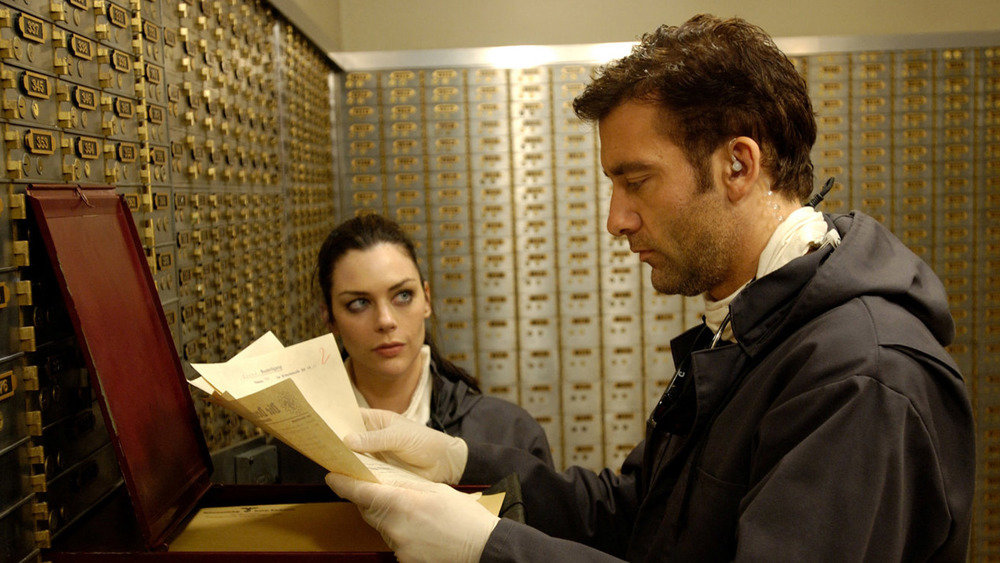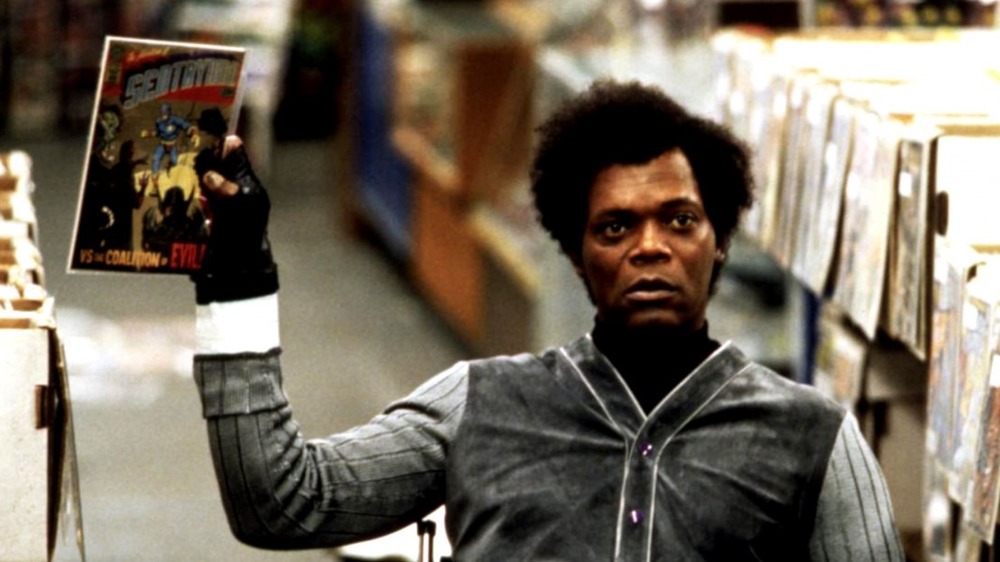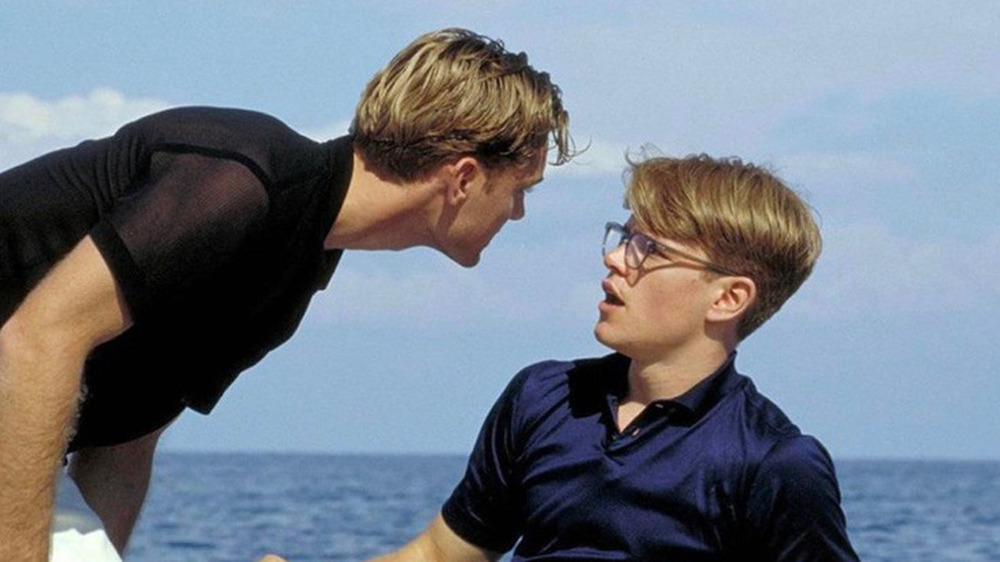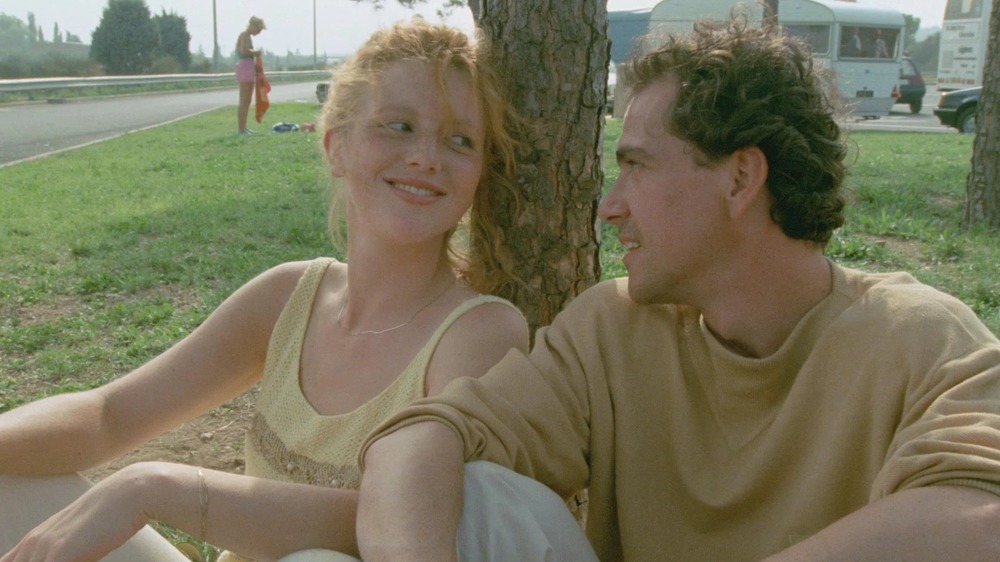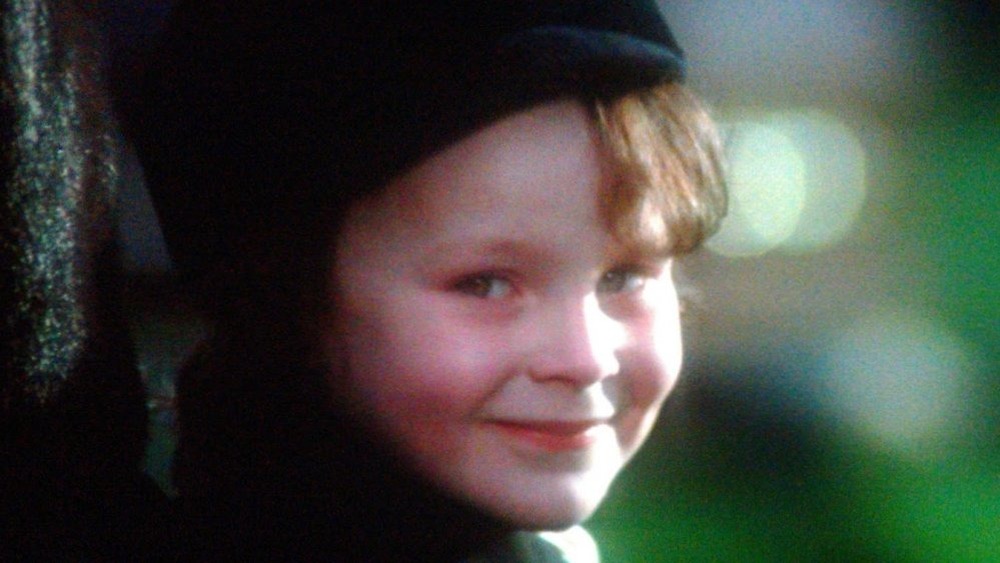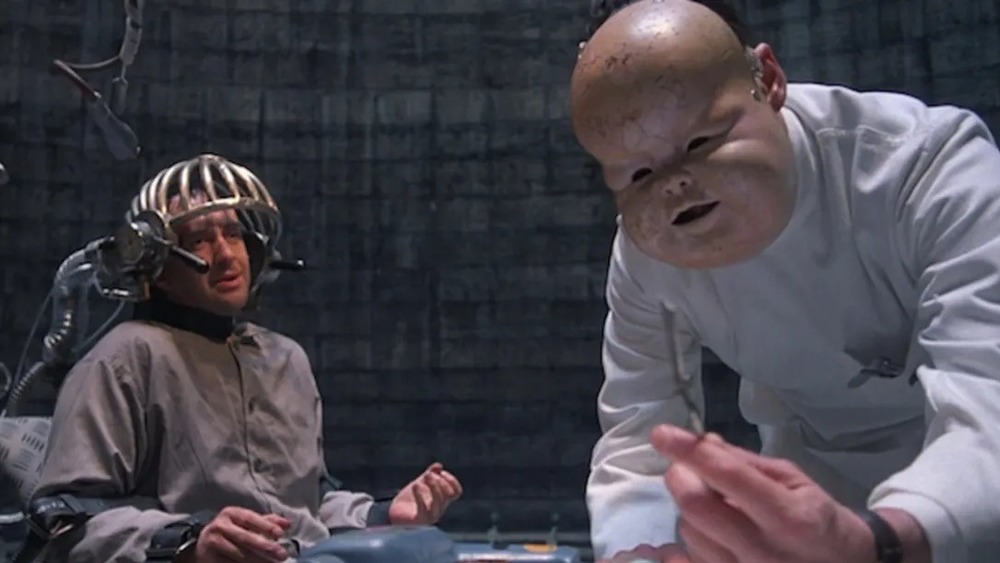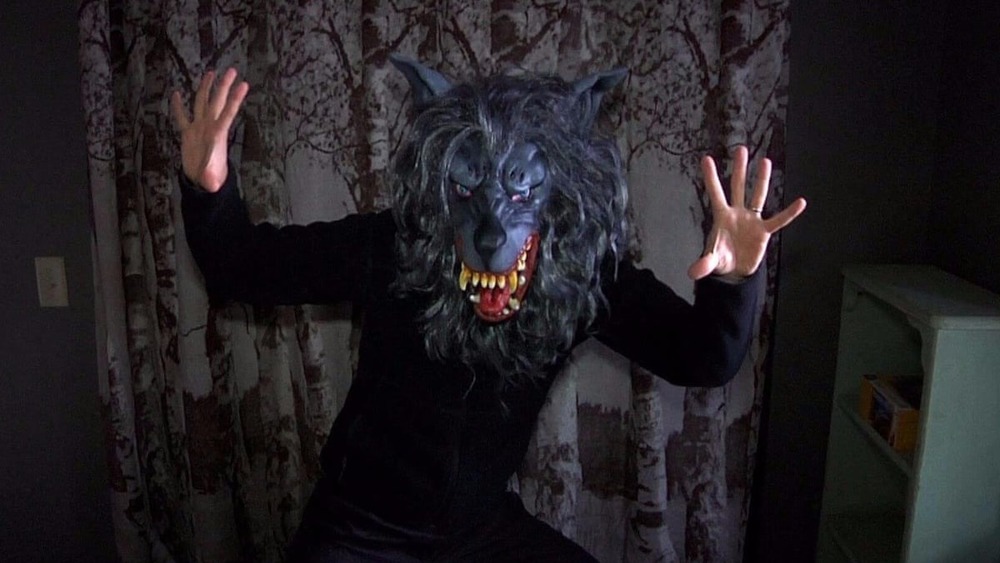Great Movies Where The Villain Actually Wins
There's nothing quite like the genuine domination of a villain to shock an audience. While everyone loves a good "happily ever after" story — whether it comes in the form of a fantasy like The Return of the King, a rom-com like Sweet Home Alabama, or a superhero romp like Avengers — once in a while, we all need to be confronted with the triumph of evil to help us remember that life isn't all sunshine and roses.
We're not just talking about cliche horror flicks with vapid would-be victims willfully entering a scenario where they're mercilessly picked off one by one. We're talking about genuine dramas that depict antiheroes striving to vanquish their foes... and then succeeding. These are films that leave you pondering over the meaning of life and, frankly, how much it can really suck sometimes. Here are our candidates for some of the greatest movies ever made where the villain actually wins.
The Empire Strikes Back
The Star Wars universe is no stranger to the bad guys being on top, with warring space factions trading blows back and forth across various conflicts. Rogue One and Revenge of the Sith certainly end on some down notes, but the series' most iconic Dark Side victory came in the middle chapter of the original trilogy. Following the first film, which left off on a Death Star-destroying high, The Empire Strikes Back came crashing back down to reality when it opened with the crushing defeat of the Rebel base on Hoth. While the movie splinters at that point, following Luke's training with Yoda on Dagobah and Han and Leia's narrow evasion of Imperial pursuers, the paths of the protagonists ultimately lead back to Lando Calrissian's floating haven, Cloud City.
Unfortunately, when Darth Vader and his minions show up in Calrissian's realm, things quickly go south for everyone. Han Solo is tortured and used as a test subject for carbon freezing, leaving him in suspended animation. Calrissian loses his city. Luke is lured into a trap where he is devastated to find out that his most hated enemy (who has just cut off his hand) is actually his father. Needless to say, there's no doubt that it was a home run for Vader and company from start to finish.
Valkyrie
Not only does this one end on a grim note, it's actually based on a true story. The 2008 film Valkyrie is inspired by the harrowing assassination attempt made against Adolf Hitler in the summer of 1944 by a cabal of German officers aiming to overthrow the Nazi regime. Colonel Claus von Stauffenberg (Tom Cruise) joins Major-General Henning von Tresckow (Kenneth Branagh) and other conspirators, who lay careful plans to kill the dictator and use the Reserve Army to maintain order and establish themselves as the new government. From there, they plan to use their power to negotiate favorable peace terms with the Allies, who are clearly marching towards an eventual victory at that point.
The film follows the story as it unfolds, with everything seeming to move towards a satisfying conclusion, almost making you forget that history tells us the crusade will fail. But alas, unlike Inglourious Basterds, Valkyrie is ruthlessly tethered to reality. Initially, the assassination comes tantalizingly close to success, with the planted explosives going off and Operation Valkyrie being initiated. But before long, reports surface that the Fuhrer has survived the explosion, and from there the plot collapses. The movie ends with Hitler still breathing and the would-be heroes dead, things having gone pretty well for the villains.
Life is Beautiful
Life is Beautiful is another story that ends with Nazis coming out on top. The Italian film was directed and co-written by the incredibly talented Roberto Benigni, who also played the lead role alongside Nicoletta Braschi, his wife of nearly thirty years. The film has won numerous accolades, including three Academy Awards. The first half of the film is light and comedic as it follows Guido Orefice, a Jewish bookshop owner in Italy who shamelessly pursues the love of his life with some slapstick bits of acting guaranteed to keep audiences rolling out of their seats.
But things take a drastic turn when the narrative jumps forward several years to a Nazi-occupied Italy, where Guido, his wife, and their son are sent to a concentration camp. Once in the camp, the bookshop owner uses his incredibly resilient imagination to tirelessly shield his son from the horrors around them, sheltering him from the knowledge that they're on anything but a holiday. Despite the subject matter, the movie builds toward a happy ending... until, in a gut-wrenching turn at the last moment, Guido is suddenly gunned down by Nazis just as the camp is liberated. An emotional roller coaster, this one may have a deeper subtext of victory in the preservation of a child's innocence, but the loss of the protagonist certainly gives evil the edge as the credits roll.
The Crucible
Another story with roots in history (why do the villains always win in real life?), The Crucible takes place way back at the end of the 17th century in colonial America in the sleepy town of Salem, Massachusetts. Yep, that Salem. Inspired by the Salem Witch Trials of historic legend, the film follows a group of young women, including Abigail Williams (Winona Ryder), who has had an affair with John Proctor (Daniel Day-Lewis) and literally wants to put a curse on his wife in order to kill her off and have Proctor all to herself.
Already messed up right from the get-go — and in the special kind of way that only real-life scenarios can provide — the situation begins to spin out of control when Abigail and the group of girls are nearly caught practicing witchcraft and ultimately begin to accuse others to save their own skin. Of course, taking place in Puritan New England, these kinds of things were not taken lightly, and anyone who is accused by the supposedly innocent posse of girls has to either confess or be executed. The film ends with several characters, including John Proctor himself, refusing to confess and ultimately being killed. Talk about a depressing win for the forces of evil.
Avengers: Infinity War
Marvel has had plenty of tragic endings over their decades of comic book stories, but the MCU usually sees the good guys come out on top in one way or another. It's a trend that has only recently been changing, kicking off in earnest when Captain America: Civil War began to pit Avengers against one another, leaving a host of angry, PTSD-ridden superheroes behind in the process. The slide downhill only picked up speed with Thor: Ragnarok, an otherwise fun movie that ended with Asgard destroyed and a handful of survivors setting out in search of refuge.
But it was in the opening minutes of Avengers: Infinity War, when we witnessed more of Thor's people being mercilessly destroyed, that Marvel finally took the plunge into a universe where villains truly can win (at least for a spell). This colossal crossover event finds the heroes struggling to rise up and defend the universe, only for Thanos to finally pull off his cataclysmic finger snap that literally wipes out half of the universe. Has there ever been a higher cost to a bad guy coming out the victor? While much of Thanos' mad destruction was "rewound" in Avengers: Endgame, it doesn't change the fact that the Russo brothers purposefully made Infinity War a Thanos-centric story that was so focused on the Mad Titan, his victory upon the movie's end is total.
Se7en
Se7en follows detectives William Somerset (Morgan Freeman) and David Mills (Brad Pitt) as they investigate a series of murders by a mysterious criminal who uses the seven deadly sins as his calling card. The movie gains speed as the duo uncover the first five sins (gluttony, greed, sloth, lust, and pride), but before the last two take place, the murderer, known as John Doe (Kevin Spacey), turns himself in to the authorities while covered in the blood of an unknown victim.
As the movie wraps up, the sense of impending doom is palpable. Doe directs Mills and Somerset to the desert, where he informs them that the last two victims will be found. Of course, they're already present, as Doe confesses to being envious of Mills' idyllic life with his pregnant wife Tracy (Gwyneth Paltrow) before a box arrives on the scene with Tracey's head. Mills kills Doe, becoming the final victim of wrath. Messed up in so many ways, the storyline never leaves the control of the antagonist, with Doe in the driver's seat all the way to the final minutes.
The Dark Knight
Another film which keeps the villain in total in control throughout, director Christopher Nolan's The Dark Knight delivered more than just an incredible performance from a greatly-missed actor. Heath Ledger's portrayal of the Joker also marked one of the most iconic superhero films in which the villain clearly has his way with the hero from beginning to end. From the moment he enters the dramatic opening heist sequence, the infamous DC villain steals the show.
Much like the Thanos-centered focus of Infinity War, The Dark Knight revolves squarely around the machinations of the Joker. It follows his rise as he distressingly yet playfully antagonizes Bruce Wayne (Christian Bale) while they progress through a series of showdowns throughout Gotham. This second film in Nolan's epic Dark Knight trilogy leaves Rachel Dawes (Maggie Gyllenhaal) dead, Harvey Dent (Aaron Eckhart) getting warped into Two-Face before falling to his own death, Batman taking responsibility for Dent's crimes to preserve his reputation, and Commissioner Gordon destroying the Bat-signal (a symbol for lost hope if there ever was one). Sure, the Joker was technically apprehended, but, truth be told, he had everything his way from start to finish. No doubt about it.
1984
Based on the classic 1949 novel by George Orwell, 1984 was adapted (appropriately enough) in 1984, and it's a film that's just about as depressing as it gets. From the infamous "Thought Police" to torture, brainwashing, and "doublethink," this one's got all of the famous stamps of futuristic, dystopian terror. The film is set in a world where the single, united super-state of "Oceania" is run like a well-oiled autocratic machine, a machine in which every move and thought of its inhabitants is scrutinized for any deviation from government-approved behavior.
The story follows Winston Smith (John Hurt), a supposedly loyal worker in the Ministry of Truth. Smith "deviates" from the rules when he meets Julia (Suzanna Hamilton) and begins to secretly pursue an affair with the daring fellow thought-criminal. Of course, government forces prove much more powerful than two humans, and the end of the movie shows the couple as they're caught and put through a system of "rehabilitation," in which they are tortured and forced to face their greatest fears in order to break their rebellion and ensure their cooperation with the regime in the future. From caged rats to that depressing ending in the cafe, there's no doubt that Big Brother wins this one, hands down.
Saw
Unlike a lot of horror flicks, the triumph of Saw's villain comes as a clever surprise. Whether you're a fan of the franchise or not, it's hard not to be impressed by the twist ending that the first film in the series delivered, with Jigsaw rising up from the center of the room, bringing everyone's jaws crashing to the ground. While director James Wan's debut film was a horrifying success, that doesn't change the fact that the villain yet again wins without question.
One of the first revelations of the film is that the saws so helpfully provided to the captive protagonists are meant for cutting not metal, but flesh. The climax becomes increasingly tense as Dr. Lawrence Gordon (Cary Elwes) slowly loses his mental stability. But even before the saws come into play, the string of events orchestrated by the mysterious murderer are more than enough to showcase that this is a villain who knows how to win. From bear traps to barbed wire and more, Jigsaw is one of the most successful villains to ever lay in a pool of fake blood on a bathroom floor.
Memento
Christopher Nolan has a gift... for letting villains win, at least. In this case, we have a movie that is as convoluted as they come. The narrative follows Leonard Shelby (Guy Pearce), who suffers from memory loss every five minutes. This is a recent condition, occurring ever since two men assaulted and murdered his wife. After Shelby killed one of them, the other knocked him on the head and escaped, leaving him with his new mental handicap.
Shelby is dead-set on hunting down the other man responsible for his wife's death, but plagued with short-term memory loss, he is forced to use tattoos and Polaroid cameras in an elaborate system to remind himself of what he discovers. The movie is filmed in both color and black-and-white sequences, showing different angles of perception and giving a sense of bizarre confusion that helps the audience relate to the protagonist... except Shelby isn't the protagonist. As the movie concludes, we find that he has been cyclically hunting down and taking "vengeance" on innocent people for a year. Repressing this information, Shelby tampers with his own photographic evidence, allowing his condition to wash all guilt away within the next few minutes and permitting him to continue his villainous behavior.
The Lord of the Rings: The Fellowship of the Ring
While Peter Jackson's film adaptation of J.R.R. Tolkien's awe-inspiring Lord of the Rings trilogy has many happy moments, the ending of the first film, The Fellowship of the Ring, is hardly one of them. As the film reaches its crescendo, the Fellowship has already gone through the devastating loss of Gandalf (Ian McKellen), but things go from bad to worse as the forces of Mordor close in on them.
Boromir (Sean Bean) kicks things off by falling to the lure of the ring and attempting to take it from Frodo (Elijah Wood). Unsuccessful and repentant, Boromir and the rest of the heroes turn their attention to a sudden attack of Uruk-Hai soldiers sent by Saruman (Christopher Lee). The attack splits up the group, with the villains killing Boromir and successfully carrying off the hobbits Merry (Dominic Monaghan) and Pippin (Billy Boyd). Frodo, in desperation, flees with Sam (Sean Astin) across the river, and the two begin to work their way towards Mordor alone. All in all, this ending is about as chaotic as it gets and doesn't lead to any one of the protagonists getting their way. Though triumph lies ahead, the ending of Fellowship is about as bleak as it gets.
X-Men: First Class
Though it's outside the canon of the MCU and isn't as catastrophic as Infinity War, X-Men: First Class is another Marvel movie that doesn't offer a shiny, happy ending. In this prequel/soft-reboot of the original X-Men movies, the storyline jumps back in time to the 1960s to explore the origin stories of its heroes and villains. Particularly, the film focuses on the development of the relationship between Professor Charles Xavier (James McAvoy) and Erik Lehnsherr (Michael Fassbender). It's the story of a profound and meaningful friendship... until it isn't.
While the movie itself brought a fresh spin to a flagging franchise, its story ended on a dark note, with the rise of an iconic Marvel villain: Magneto. As the film goes through its final climactic sequences, the differences between Xavier and Lehnsherr's views regarding mutant activism come to a head, with Lehnsherr officially parting ways with the professor. This begins his journey as the chief antagonist to Xavier's team, a rivalry fated to go down in history.
Chinatown
The early 1970s were a dark time for American movies, and Chinatown is exemplary of that trend. The film is stylized like a noir, complete with a 1930s setting and a complicated plot involving water rights in California. The movie's plot is ultimately fairly secondary to its tone, which is despairing throughout. In its final moments, we see the death of the film's heroine (Faye Dunaway), and hear the signature line "Forget it Jake, it's Chinatown."
The film's villain, Noah Cross (John Huston), gets away with his complicated scheme to consolidate more power. What's more, no one discovers that his daughter, who was the one who initially opened the case with Jack Nicholson's private investigator character Jake Gittes, was someone he molested. At the film's conclusion, Gittes fails to protect her and is forced to walk away from the whole affair unsatisfied.
Chinatown is a grim film about the realities of a life in which a few powerful people can play with the rest of us like pieces on a chess board. Gittes tries his best to change things, but discovers that knowing the truth matters less than having power.
No Country For Old Men
The Coen brothers don't usually make happy movies, but No Country for Old Men is one of their bleakest. It follows Josh Brolin's Llewelyn Moss as he makes off with a huge pile of cash in the aftermath of a drug deal gone wrong. He's pursued by Anton Chigurh (Javier Bardem), a man relentlessly bent on recovering the funds. Chigurh is a menacing figure one who asks his victims to flip a coin in order to determine whether they'll live or die.
Both Moss and Chigurh are also being pursued by Sheriff Tom Bell (Tommy Lee Jones), who makes a vow to protect Moss but ultimately fails. Chigurh kills him offscreen, recovers the money, and walks away scot free. No Country for Old Men ends with Bell, who has retired from the force as a result of the violence he's seen, as he describes a dream he once had about finding light in the darkness.
That ending, and the entirety of No Country for Old Men, suggests that light is an illusion. Humanity lives in the darkness and revels in it, and bad people do bad things and get away with them. Anton Chigurh isn't punished for his crimes. He's brutal enough to do whatever he wants.
Rosemary's Baby
Don't marry an actor. That's the real moral of Rosemary's Baby. The film follows Rosemary (Mia Farrow) as she goes through her pregnancy and the birth of her child, only to discover that she's delivered a child of Satan. The baby was part of a deal that her husband (John Cassavetes) drew up with their neighbors, who happen to worship the devil.
Throughout the film, Rosemary works to uncover what's really going on with her pregnancy, but in the end, she fails to stop the demonic scheme. What's more, she seems to decide that she's willing to love the child anyway. She was forced into this pregnancy against her will, sold out by her husband completely. Her child, though, is still hers, even if his dad is a bit of a troublesome figure.
The movie ends on the bleak idea that Rosemary can't do anything about her situation. She's been tortured throughout the film, and her reward is a child she never asked for. Evil wins out, and Rosemary is left to pick up the pieces of a life that other people have forced on her.
Gone Girl
If your wife tried to frame you for her murder, would you take her back when she returned? Most people would likely say no, but not Nick Dunn (Ben Affleck), one of the characters at the center of Gone Girl. The movie follows Nick in the aftermath of his wife's disappearance, as evidence begins to pile up suggesting he's the killer. As we learn midway through the film, though, his wife Amy (Rosamund Pike) has been setting him up the entire time.
From there, the movie tracks Amy's decision to return home, and her ultimate plan to trap Nick in their relationship. She's pregnant with his child, and he decides that he has to stay to help raise it. It's a genius move, but it's also one that gives Nick an excuse to do what he wanted to do anyway.
As Amy, the film's ostensible villain, tells him, he actually likes the life she gives him. She's exciting and challenging, and that's what he wants, even if it means that he's occasionally accused of murder. In the end of Gone Girl, Amy gets everything that she wants, even though she's murdered at least one person along the way.
The Usual Suspects
Few movies pull the rug out from audiences as successfully as The Usual Suspects. For most of its runtime, we think we're getting a reliable version of the film's events from Verbal Kint (Kevin Spacey), the only survivor of a five-man crew who decides to pull a robbery that goes terribly awry. In the film's final moments, though, we realize that Verbal has been lying the entire time.
The film's villain, a terrible criminal known only as Keyser Soze, is actually Kint, and the limp he's had for the entire movie is fake. It's unclear how much truth there is in the story that Kint tells, but he ultimately escapes without a scratch. He deceives everyone, and the movie's final moments are devoted to watching Kint drive away, having killed several people without any sort of punishment.
Spacey's performance in the film won him an Oscar, and it's easy to see why. There's a menace hiding underneath the supposedly vulnerable Kint that becomes obvious as soon as you know the twist. Kint is just telling a story to get out of a tough bind, and the cops who are listening fall for it hook, line, and sinker.
Basic Instinct
Erotic thrillers thrive on the bizarre combination of sexual chemistry and death threats. In Basic Instinct, Sharon Stone and Michael Douglas balance those qualities perfectly. The film follows Douglas' erratic cop as he becomes obsessed with an author (Stone) who is a suspect in a murder case in part because she wrote a book that describes a very similar murder in gruesome detail.
Douglas' obsession eventually transforms into a sexual relationship, and audiences are never explicitly told that Stone's character is guilty. Even so, it's easy to put the pieces together and realize that she's likely gotten away with several murders over the course of the film — possibly before as well. All of that becomes more evident in the film's closing moments, as we see that Stone's author has considered killing Douglas' cop the same way the murder at the start of the film goes. She reaches for an ice pick that she has stashed under her bed, but ultimately decides against pulling it out and using it.
Basic Instinct is a filthy neo-noir in every sense of the word. While we don't know for sure who the murderer really is, it certainly seems like someone has gotten off easy as the movie reaches its conclusion.
Alien: Covenant
The Alien movies are generally fairly bleak affairs. In the first couple, though, protagonist Ellen Ripley gets out of danger by the end, even if there are heavy casualties along the way. By the time Ridley Scott got around to directing Alien: Covenant, even the endings aren't necessarily happy. Unlike most previous Alien movies, though, the villain of Covenant isn't a xenomorph, but the android David (Michael Fassbender), who was first introduced in the preceding film, Prometheus. In this movie, we learn that David is the xenomorph's creator, and we watch as he slowly picks off the crew of the ship that has discovered him.
Although several crew members do survive the film, David undoubtedly emerges victorious, and successfully escapes the planet where he was stranded. He's going to spread xenomorphs all over the galaxy, and those very same aliens will eventually terrorize Ripley and her crew on the Nostromo. David's victory in this film is not just bleak because of what it means about Covenant, but also because of what it foretells about the rest of the Alien universe.
One Flew Over the Cuckoo's Nest
One Flew Over the Cuckoo's Nest is about a rebel who loses. The film stars Jack Nicholson as Randall McMurphy, a new patient at a mental institution who pled insanity in order to avoid hard labor while imprisoned. Once he arrives, he discovers that the hospital is being run under the strict supervision of Nurse Ratched (Louise Fletcher), and decides that he wants to challenge her rule. The film chronicles McMurphy's attempts to rile the other patients at the institute up in defiance of Nurse Ratched.
Ultimately, though, McMurphy's attempts at defiance fail. At the end of One Flew Over the Cuckoo's Nest, it's determined that the only way the threat McMurphy poses can be neutralized is if he is lobotomized. In the film's final scene, Chief (Will Sampson), a character who has been silent for most of the film, asphyxiates McMurphy with a pillow and escapes from the institute. Although Chief gets away with his life, McMurphy, the rebel at the film's center, does not. Nurse Ratched quashes his attempt to get himself and his fellow patients more freedom, and he dies. Ratched's tyrannical rule over the facility remains.
The Cabin in the Woods
The Cabin in the Woods is something of an exception on this list. The villains undoubtedly win, but they do so with the help of the movie's protagonists. The Cabin in the Woods is an explicit riff on horror movie tropes, as five friends head to the country to spend a weekend in a creepy, abandoned cabin. What they don't know is that they are actually human sacrifices in an annual ritual. The ritual has specific rules that happen to align with those of a horror movie, and requires that at least four of the five friends die in the cabin.
If the friends don't die, mythical forces from the underworld will return to Earth and wipe out mankind. When the protagonists discover this, though, they decide not to play along. Instead of agreeing to act as sacrifices, they decide that humanity should be doomed. The ritual fails, and the titans return to Earth. As a result, the film's human villains, the people who were trying to sacrifice our main characters, lose. The titanic evils they were trying to stop, though, prevail, and humanity is wiped out completely. The Cabin in the Woods argues that might be for the best.
Watchmen
Watchmen is based on some pretty depressing source material, and Zack Snyder's 2009 adaptation doesn't do much to mess with that tone. Although the adaptation does change some things, the basic plot of the graphic novel remains intact: The death of a superhero spurns an investigation that ultimately unveils a plot hatched by Ozymandias (Matthew Goode), the smartest man on the planet.
Ozymandias' plan is to avert an apocalyptic event by creating one on a much smaller scale. In the movie, this event is a radioactive explosion that he plans to blame on Dr. Manhattan (Billy Crudup), uniting the U.S. and U.S.S.R. against him. Ultimately, the rest of the superheroes agree that Ozymandias' plan is the best course of action if an apocalypse is to be avoided. The plan requires the deaths of millions, but it goes off without a hitch, and Ozymandias believes that he'll be justified in the end. Both the movie and the graphic novel suggest that the plan may not be the success that he imagines it to be, but they allow him to carry it out anyway. He wins, and his victory means death and destruction.
The Wicker Man
The Wicker Man ends with a human sacrifice, as all great horror movies should. The film follows a devout Christian detective named Neil Howie (Edward Woodward) who visits a small Hebridean island as part of his search for a missing girl. While on the island, Howie becomes horrified by the pagan rituals that he sees practiced. Ultimately, he determines that the missing girl is meant to be a human sacrifice, and infiltrates the islanders' ceremony in order to rescue her.
After escaping with her, though, it's revealed that she only "went missing" to draw Howie to the island. Howie was always intended to be the human sacrifice, as the sacrifice has to meet certain criteria, and he meets all of them. The movie ends with our hero detective being burned alive alongside a variety of animal sacrifices. He recites the 23rd Psalm, hoping to condemn those who have chosen to sacrifice him.
Depending on your religious beliefs, Howie may achieve a spiritual victory at the end of the movie. Ultimately, though, the islanders overwhelm and sacrifice him, and he can do nothing to stop it.
Arlington Road
Playing on the paranoia caused by terrorist bombers in the 1990s, Arlington Road is about suspecting that your neighbors are terrorists... and ultimately finding out that you're right. The movie follows Michael Faraday (Jeff Bridges) as he meets his new neighbors and begins to suspect that they're lying about their lives. Ultimately, he discovers that they're part of a terrorist organization and their goal is to blow up part of an FBI building located near their neighborhood.
Although Michael attempts to warn the authorities about the incoming attack, his neighbors are ahead of him at every turn. Ultimately, a bomb does go off, but the bomb has been planted in the back of Michael's car. Because Michael was at the FBI building to warn them, it blows part of that building up, and Michael appears to be the lone wolf responsible for the explosion.
Michael's neighbors, meanwhile, get away scot free, and move to another suburb where they can find someone else to blame for their latest attack.
Ex Machina
There aren't really any good guys in Ex Machina, but that doesn't mean that the villain doesn't ultimately win the day. The movie, which tells the story of a low-level computer programmer named Caleb (Domhnall Gleeson) who travels to a tech billionaire's house in order to test his advanced artificial intelligence, exists in a moral gray area. Ava (Alicia Vikander), the artificial intelligence, seems kind and gentle, but obviously resents the cage she has been placed in by her creator.
Eventually, Ava escapes that cage, killing her billionaire creator and trapping Caleb inside her former home. Ava commits murder in the process of escaping, and the movie treats her escape with a sense of dread. Although she sends some characters to their doom, it's hard not to feel at least part of yourself rooting for Ava. She's been trapped by men for the entirety of Ex Machina, and in the end, she finally gets a chance to break free.
Inside Man
If you're just looking at its premise, Inside Man really shouldn't work. The movie, which tells the story of bank robbers and the cops who are trying to stop them, spends much of its running time hyping up the genius of the robbery plot at its center. At times, it seems like the head robber, played by Clive Owen, is losing control of his carefully constructed plan. And because the cop in charge of stopping him is played by Denzel Washington, it can be pretty hard to imagine the robbery going successfully.
In the end, though, our robber gets away with it. He hides inside the bank for days after the initial robbery, waiting for the right moment to casually exit the building with all the money he's stolen. It's a shockingly simple plan, one that only requires some determination on his part. Washington's cop steps away from the crime realizing there's an entire rigged system that he's operating within. At the end of the day, Owen's character gets away with it because the cop charged with stopping him stopped caring.
Unbreakable
Mr. Glass (Samuel L. Jackson), the villain at the heart of Unbreakable, believes in the archetypes that comic books establish. He knows he's a villain, and that David Dunn (Bruce Willis) exists to oppose him. The movie's twist isn't that Glass has pulled off some major scheme. What we discover is that he's been a terrorist this entire time, and that his ultimate goal was to uncover other people with special abilities like his.
Glass gets away with his plot because he carries it out before the movie even really begins. He discovers David in the process, and while David ultimately imprisons him, he's actually doing exactly what Glass wants him to. Glass's only goal was to find a hero to oppose him, and he's done that by discovering David. He never wanted to escape from his plan without consequences. He wants to fulfill his comic book fantasy, with everything that might entail.
The Talented Mr. Ripley
Matt Damon has a range he doesn't get to show off much these days. In The Talented Mr. Ripley, though, we see Damon play a psychopath with chilling skill. The movie follows Tom Ripley (Damon), a low-class man who rises up the ranks of young high society in the 1950s thanks to a relationship with Dickie Greenleaf (Jude Law), a wealthy, aimless young man.
Ultimately, Tom's love for and jealousy of Dickie proves too powerful, and he kills him at sea. Instead of confessing to his crime, though, Tom takes over Dickie's life, and all of the wealth that it entails. Tom spends the rest of the film trying desperately not to get caught, and he succeeds. He gets away with that murder — and another one. Tom Ripley may not be a good person, but he is very good at what he does, and he proves that at the end of The Talented Mr. Ripley.
The Vanishing
A Dutch import that was later remade as an American film starring Jeff Bridges and Kiefer Sutherland, The Vanishing is an effective thriller because of the toll it inflicts on a harmless protagonist. The story follows a couple, Saskia (Johanna ter Steege) and Rex (Gene Bervoets), who are on a trip together. When the two of them pull over at a rest stop, Saskia goes into the station to buy something and vanishes. Rex frantically searches for her, but is never able to find her.
Years later, Rex is confronted by Saskia's kidnapper. Raymond (Bernard-Pierre Donnadieu), the man who kidnapped and eventually killed Saskia, tells Rex that he knew from a young age that he didn't have any conscience. In fact, his decision to kidnap Saskia came as he was trying to determine whether doing bad things felt any different to him than doing good deeds.
Eventually, he tells Rex that the only way he'll be able to learn what happened to Saskia is by experiencing it himself. The two return to the rest stop where Saskia originally vanished, and Raymond drugs Rex. When he wakes up, Rex finds that Raymond has buried him alive.
Raymond, meanwhile, is living a quiet, peaceful life with his family. He's gotten away with two murders, and he doesn't feel a thing.
The Omen
It's hard to beat Satan. The Omen is a classic horror film for many reasons, but one is undoubtedly its bleak ending. The film tells the story of a couple who unknowingly adopt the antichrist, a young boy named Damien (Harvey Spencer Stephens). Unsurprisingly, the movie doesn't end on a particularly happy note.
Robert Thorn, Damien's father, spends much of the movie trying to determine where his adopted son actually came from. Along the way, a number of people die under questionable circumstances. As the movie approaches its climax, Damien's adopted mother is killed by his nanny, and when Robert discovers that his wife has been murdered, he stabs the nanny to death.
Then, he takes Damien to a church and places him on the altar, only to be shot down by police before he can kill his demonic son. The movie ends with a joint funeral for Damien's adopted family, and Damien himself cracking a smile. By the end of The Omen, evil has conquered good, and everyone who knows what Damien really is has already ended up in the ground.
Brazil
When you watch Brazil, everything is not exactly what it seems. The movie follows a low-level government worker named Sam (Jonathan Pryce) who spends much of his time thinking about a woman who comes to him in dreams. Ultimately, Sam becomes embroiled in a complicated conspiracy after discovering that a bureaucratic error has led to the arrest and death of the wrong man.
That discovery leads Sam down a path to find the woman he's been seeing in his dreams, who is named Jill (Kim Greist). When he learns that Jill is considered a terrorist accomplice because she attempted to report the wrongful arrest, Sam falsifies records so she can escape.
After sharing a romantic night together, the two are arrested, and Sam is strapped to a chair where he is about to be tortured. Before the torture can begin, though, a resistance force breaks into the building and rescues Sam and Jill.
In the movie's final moments, though, we learn that rescue mission was all a delusion of Sam's broken mind. We see that he is still trapped to the chair, and it's heavily implied that he has been lobotomized. His torturers decide he's a lost cause, and leave him alone to sing to himself.
Sam may dream of escaping the bureaucracy that controls every aspect of his life, but in reality, it's a system that's impossible to escape from.
Creep
Another horror entry, Creep's ending is dark and definitive. This found-footage film tells the story of Aaron (Patrick Brice), a videographer who has been hired by a man named Josef (Mark Duplass) to film a video diary in a remote cabin. Josef tells Aaron that he has an inoperable brain tumor, and wants to film a diary for his daughter, who will be born after he dies.
Josef displays strange behavior throughout the movie, and Aaron ultimately receives a call from Josef's sister urging him to leave the house as soon as possible. The two scuffle, but Aaron gets away, and begins getting videotapes from Josef following his departure.
Aaron realizes that Josef is stalking him, and Josef eventually offers to meet Aaron in a public park in order to make peace. As a precaution, Aaron decides to keep a camera on himself. Josef comes up from behind Aaron while he's sitting on a bench and kills him with an axe.
Josef reviews the footage Aaron collected following his death, and realizes that Aaron must have thought he was a good person. Although that doesn't ultimately save his life, it does make Aaron Josef's favorite victim. The movie ends as Josef moves on to his next kill, and puts Aaron's film on the shelf with the rest of his victims.
